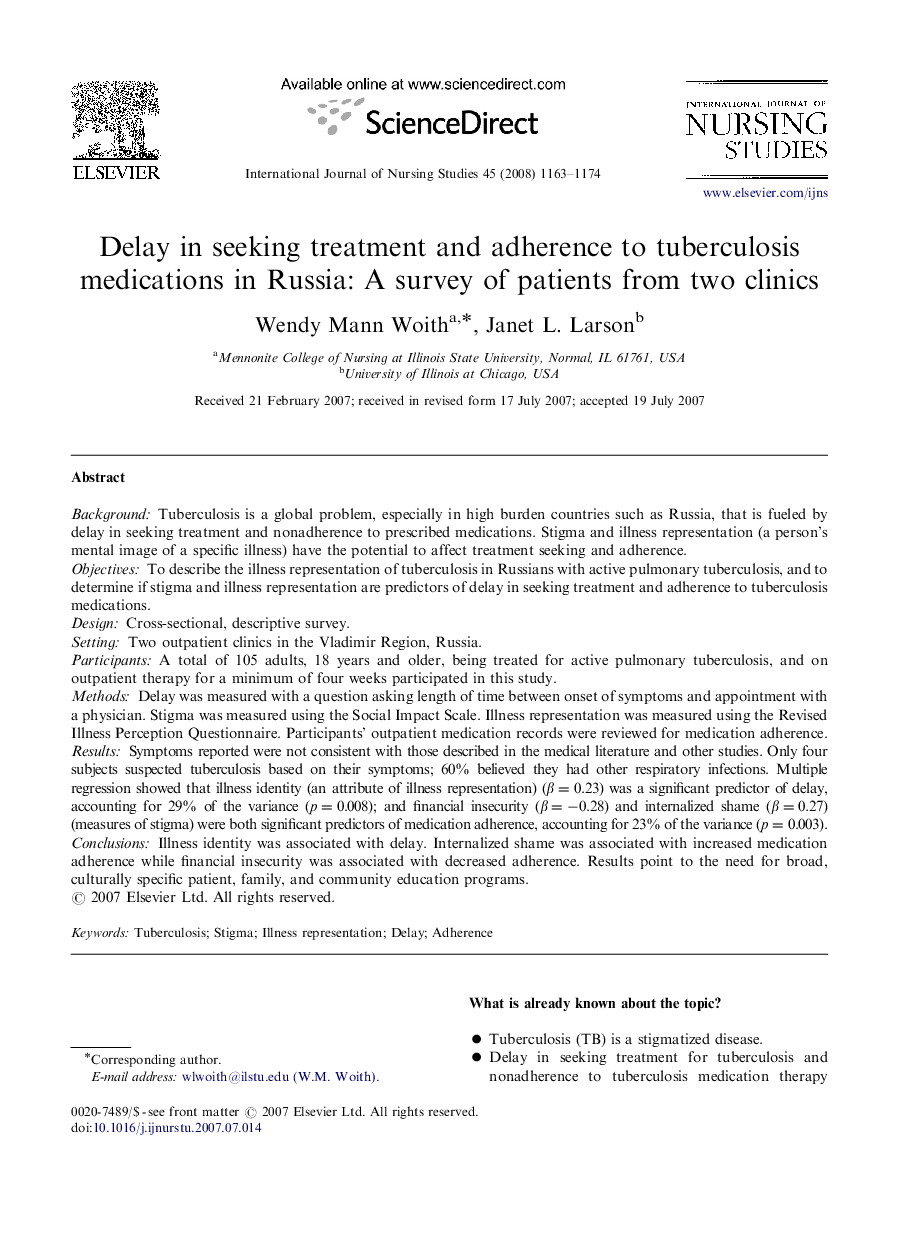| کد مقاله | کد نشریه | سال انتشار | مقاله انگلیسی | نسخه تمام متن |
|---|---|---|---|---|
| 1077140 | 1486605 | 2008 | 12 صفحه PDF | دانلود رایگان |

BackgroundTuberculosis is a global problem, especially in high burden countries such as Russia, that is fueled by delay in seeking treatment and nonadherence to prescribed medications. Stigma and illness representation (a person's mental image of a specific illness) have the potential to affect treatment seeking and adherence.ObjectivesTo describe the illness representation of tuberculosis in Russians with active pulmonary tuberculosis, and to determine if stigma and illness representation are predictors of delay in seeking treatment and adherence to tuberculosis medications.DesignCross-sectional, descriptive survey.SettingTwo outpatient clinics in the Vladimir Region, Russia.ParticipantsA total of 105 adults, 18 years and older, being treated for active pulmonary tuberculosis, and on outpatient therapy for a minimum of four weeks participated in this study.MethodsDelay was measured with a question asking length of time between onset of symptoms and appointment with a physician. Stigma was measured using the Social Impact Scale. Illness representation was measured using the Revised Illness Perception Questionnaire. Participants’ outpatient medication records were reviewed for medication adherence.ResultsSymptoms reported were not consistent with those described in the medical literature and other studies. Only four subjects suspected tuberculosis based on their symptoms; 60% believed they had other respiratory infections. Multiple regression showed that illness identity (an attribute of illness representation) (β=0.23) was a significant predictor of delay, accounting for 29% of the variance (p=0.008); and financial insecurity (β=−0.28) and internalized shame (β=0.27) (measures of stigma) were both significant predictors of medication adherence, accounting for 23% of the variance (p=0.003).ConclusionsIllness identity was associated with delay. Internalized shame was associated with increased medication adherence while financial insecurity was associated with decreased adherence. Results point to the need for broad, culturally specific patient, family, and community education programs.
Journal: International Journal of Nursing Studies - Volume 45, Issue 8, August 2008, Pages 1163–1174